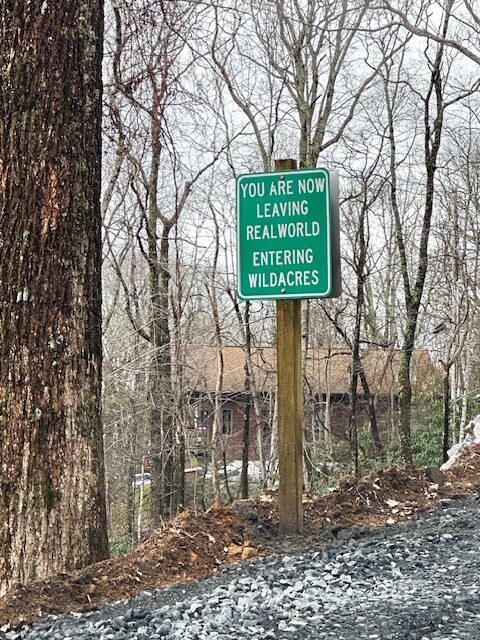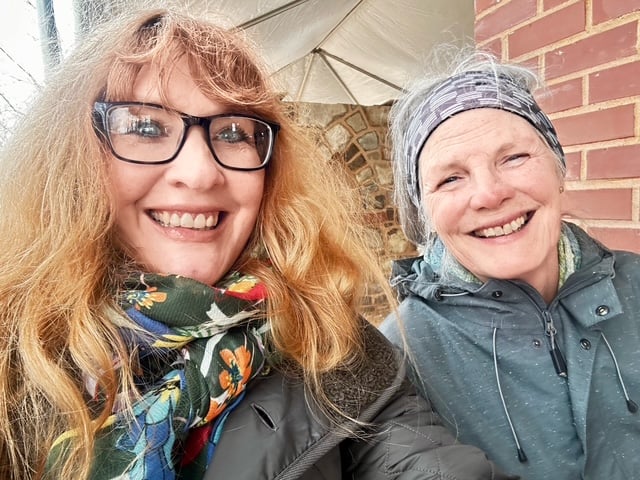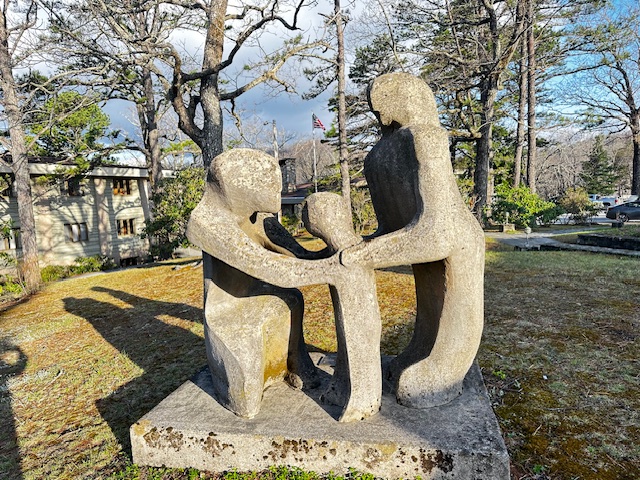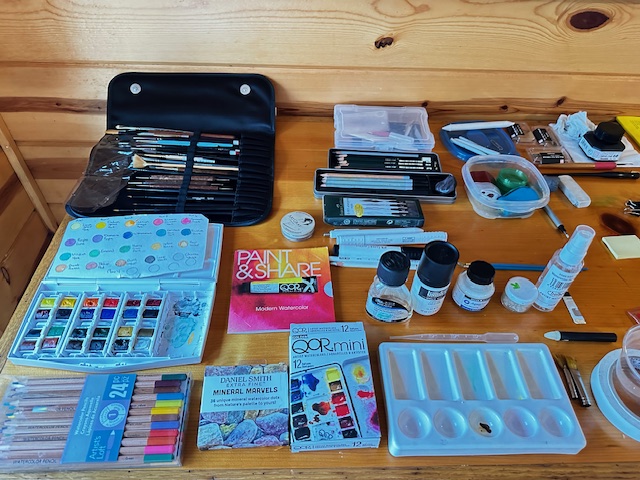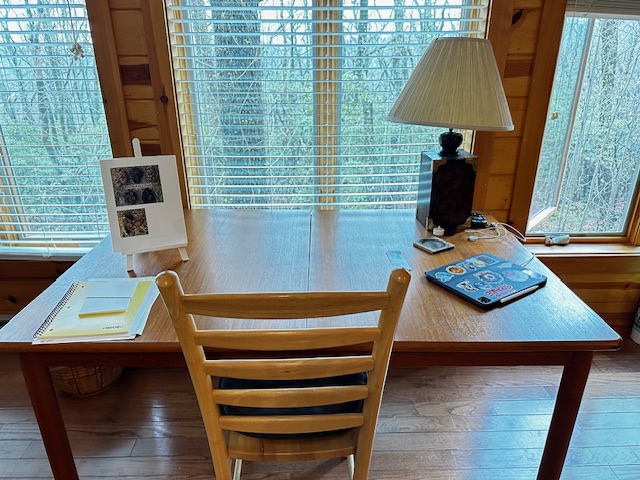Should you apply for an Artist Residency?
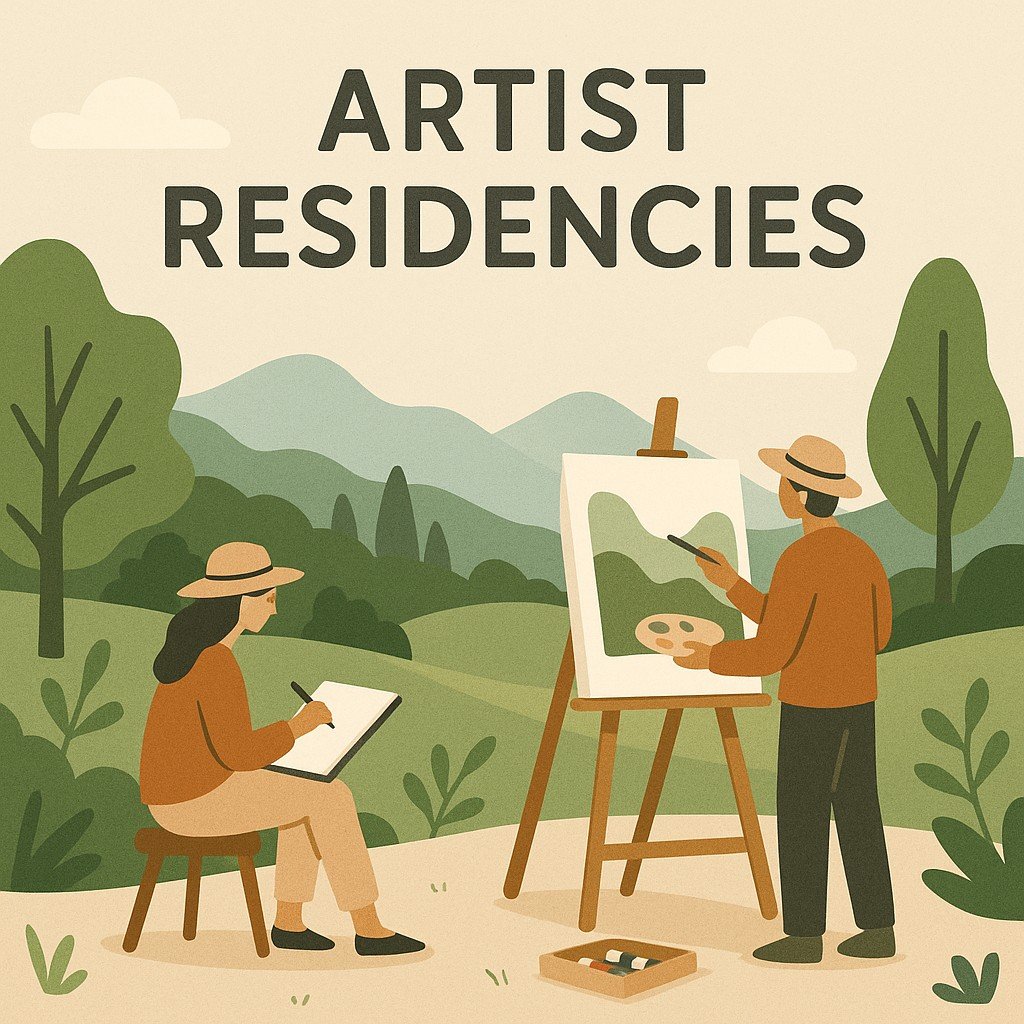
For many artists, the idea of an artist residency carries a powerful mix of excitement and pressure. It’s a chance to step away from daily distractions, dive deep into your work, and find fresh inspiration. But often, the pressure to "get it right" when applying can feel overwhelming — like you have to somehow predict and plan your greatest masterpiece in advance.
If you’ve ever stared at a residency application wondering if you're "enough" — enough of a visionary, enough of a planner, enough of a polished communicator — you’re not alone. The truth is, the key to a meaningful residency experience starts long before you ever step foot into a studio or residency space. It starts with openness.
Let Go of the Pressure
First things first: you don’t have to have it all figured out.
One of the biggest myths about artist residencies is that you need a grand, fully-formed project to get accepted. In reality, what most programs are looking for is a sincere, committed exploration — not a final product. They want to see your curiosity, your willingness to engage with a place, a community, or a question.
Instead of asking yourself, “Is my project impressive enough?” try asking, “Am I genuinely excited about what I want to explore?” That excitement, that authenticity, is magnetic. And it shines through in applications more than rigid plans ever do.
Pick a Topic, Focus on It
When preparing your residency application, think about the themes or questions that are currently calling to you.
Pick a topic. Focus on it.
But don’t chain yourself to it.
You’re not writing your artistic destiny in stone — you’re picking a starting point. A clear topic gives your application structure and shows reviewers that you’ve thought intentionally about your time. Yet it also leaves you room to evolve once you’re actually immersed in the residency experience.
Maybe you want to explore the relationship between memory and landscape. Or the language of color in urban environments. Or how soundscapes shape emotional memory. Whatever your focus, trust that the topic will lead you into unexpected places — and that’s a good thing.
Residencies often have a way of gently rerouting our plans for the better. The light, the people, the rhythm of a new place — they can shift your vision in ways you couldn’t have anticipated.
Find a Way to Express It
Once you’ve picked your topic, the next step is finding a way to express it.
For visual artists, expression could be be a small sample series, sketches, or a mood board. Depending on your topic and/or the length of the residency, you might even complete your project, but don't make this the goal otherwise the pressure could become overwhelming.
Whatever medium you work in, the goal is to make your idea tangible — not perfect, but real. You’re offering a glimpse into your creative mind, inviting the selection committee to imagine the journey with you.
And remember: you are not being judged against perfection. You are being considered for your ability to imagine, to wonder, and to pursue a thread of meaning with heart and dedication.
Stay Open During the Residency, Too
If you’re accepted — and even if you’re not right away — it’s crucial to carry this spirit of openness with you.
Residencies are fertile, living ecosystems. Sometimes your project will blossom exactly as you envisioned. Sometimes it will morph completely, responding to conversations, collaborations, or even quiet moments of solitude.
Both outcomes are equally valuable.
Success isn’t measured by how closely you stick to your original plan. It’s measured by your willingness to listen — to yourself, to the environment, to the unexpected callings that arise.
It’s Okay If It’s Messy
Art — real art — is messy. Growth is messy. Transformation is messy.
It’s okay if you don’t have a tidy answer when someone asks what you’re working on. It’s okay if your project spills into directions you didn’t predict. It’s okay if some days you just sit and think, or walk for miles, or spend an afternoon making one rough sketch that leads nowhere obvious.
These moments are not wasted. They are the soil from which deep creative work eventually grows.
A Final Thought: Trust Yourself
If you take one thing from this, let it be this: You are enough.
Your questions are enough.
Your imperfect sketches are enough.
Your evolving, curious, searching self is enough.
Residencies are not just about producing work — they are about giving yourself the space to dream, to question, and to expand. Your willingness to stay open, to be present with your topic, and to trust the process is the most important thing you bring to any creative opportunity.
When you pick a topic, focus on it, and find a way to express it — all while giving yourself permission to be human and imperfect — you’re already well on your way.
The rest will unfold, just as it’s meant to.
P.S. I had my first artist residency last month at Wildacres Retreat. Initially, I hesitated about applying because I didn't have a fully formed project. As a nature artist, I knew that I wanted to focus on black bears and their role as seed dispersal agents in forests, however, I had no idea how that might be expressed visually. I stuck with the topic though. Once I arrived at the residency, an idea about how to express it visually formed and continued to evolve while there through my focus on research, conversations with others I met, and being in the environment itself. At the end of my one-week residency, I expressed it with a digital story "Seeds on the Move: a seed's journey through black bear scat" combining watercolor, digital illustration, and animation. Is it finished, NO, but the residency afforded me time I wouldn't otherwise had to develop my topic into a pleasing rough draft that can complete later. The residency itself was amazing! I spent time in a gorgeous area, met new friends, and was taken care of by the staff. These are some pics from my time at Wildacres. Check out their website for more information about their residencies.
